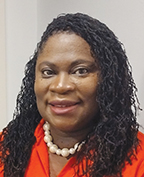Ida B. Wells wasn’t the only Black Woman to make Waves in Journalism.
By Nadira Jamerson | Word In Black
(SourceWORDINBLACK.COM)
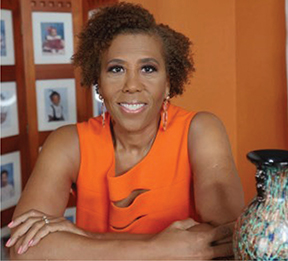
(WIB) – In the past few years, we’ve seen Ida B. Wells — one of the most prominent journalists, anti-lynching activists, and women’s rights activists in history — finally get the recognition she deserves. The Ida B. Wells Society was launched in 2016. In 2018, the New York Times belatedly ran an obituary about her. And in 2019, after a campaign by Wells’ great-granddaughter Michelle Duster, Chicago finally named a street after Wells.
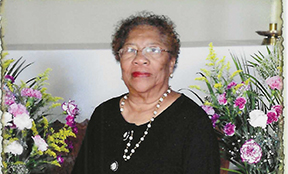
But have you heard of Mary Shadd Carey, the first Black woman to become a publisher in North America when she created The Provincial Freedman in 1850? Or Alice Allison Dunnigan, who in 1948 became the first Black female correspondent to receive White House credentials?
There is a long history of Black women who have not only contributed to but been leaders of the Black Press. That’s why Ava Thompson Greenwell, professor at the Medill School of Journalism, Media, Integrated Marketing Communications at Northwestern University, says it’s time we give them their flowers.
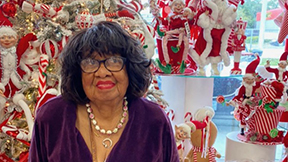
“It’s important to situate them in the history and the importance they played at their Black press. These were owners, not just managers, but owners and publishers of these newspapers,” she explains.
Black women make up less than 5% of print and online newsrooms today. Greenwell believes teaching about the legacy of Black women publishers and increasing the visibility of Black women in the field is crucial if we want the next generation of Black girls to be inspired to join the profession.
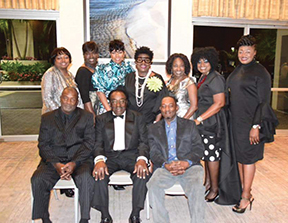
“We know that patriarchy also runs deep within the Black community, and we have to uplift these Black women who are doing these things despite the sexism,” she says.
Journalism is the first page of history, and when it comes to Black journalism, it’s the same thing. It’s a historical record of what Black people were doing and what was important to them at the time. Ava Thompson Greenwell, Professor at The Medill School of Journalism, Media, Integrated Marketing Communications at Northwestern University
Greenwell recalls how learning about Daisy Bates, publisher of The Arkansas State Press, inspired her during her career. While researching for her doctorate, Greenwell took a deep dive into Bates’ life and admired her ability to weave activism through her journalism.
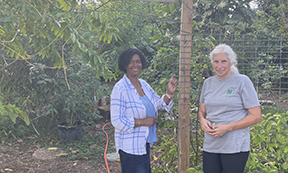
Elaine Lindsay and LeAnn Barber When the pandemic hit in March 2020, the market closed. The club turned its attention to making cloth masks for friends and family. Three hundred plus masks later, the focus shifted outdoors. We were introduced to a permaculture specialist, Megan Kelley, and started to transform several vacant lots in Roosevelt Gardens and Boulevard Gardens into 4-H Food Forest Gardens. The food forest is a new concept in gardening but actually a return to an ancient method of growing food that nourishes the soil first in order to allow it to support the plants and trees to grow strong and produce abundantly.
Bates was known for her coverage of Black men who were being unjustly railroaded in court as rapists and the coverage of Black women survivors of sexual assault whose cases were not being taken seriously. As a member of the NAACP, she advocated for the integration of Little Rock, Arkansas, in the 1900s.
“Those kinds of stories wouldn’t happen without Black women publishers,” Greenwell says. “What’s interesting about a lot of these women early on is that they were not just journalists and publishers. They were activists in their community. That’s the difference. Today, we say we must separate the activism from the journalism, but these women didn’t see it that way. There was too much at stake.”
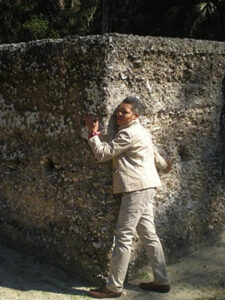
The need for more Black journalists — and more Black journalists — comes as attacks on Black history are sweeping the nation. More reporters who can amplify and uplift the Black experience are needed, especially at a time when Black books are being banned and prominent politicians are going to war against African American studies.
That’s why Greenwell says it’s time to rally behind the folks who have historically amplified the realities of the Black experience: the Black Press.
“Journalism is the first page of history, and when it comes to Black journalism, it’s the same thing,” she says. “It’s a historical record of what Black people were doing and what was important to them at the time.”
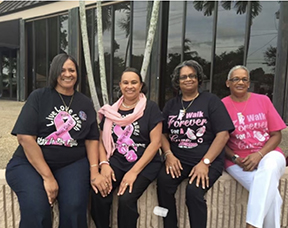
These are some of the hardest working ladies in the Black Press of America. They have contributed with their undying spirit and resolution to produce the family’s Westside Gazette Newspaper for over 52 years. These are the unsung sheroes that work behind the curtains during ‘crunch times’ to make sure that the Westside Gazette is delivered weekly. The new frontier of the digital world has not frighten nor stopped the efforts of these courageous women to learn, live, love, and lead in this endeavor. They accomplish these feats while nursing the next (3rd) generation of the Westside Gazette. They have never missed a beat even when their health was failing, children going astray, storms damaging their homes and broken automobiles. Neither could deny them from preforming their service to ‘The people’.
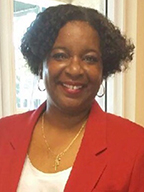
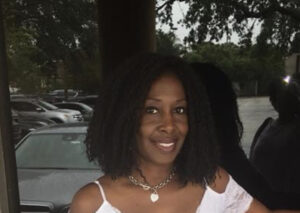
Luwando Wright, an over coming woman. Wright hails from Palm Beach County’s Belle Glade, Florida better known as “The Muck”. Coming from “The Muck” Wright was blessed with a great sense of family and community coupled with a firsthand experience with the struggle of poverty. Yet, she had a praying mother and a hard-working father who understood what an education could provide for their children. They instilled values in Wright to do well in school. Wright graduated from Glades Central High School in 1984. She then attended the Florida A & M University where she played the piccolo in the Marching 100 for two years.
